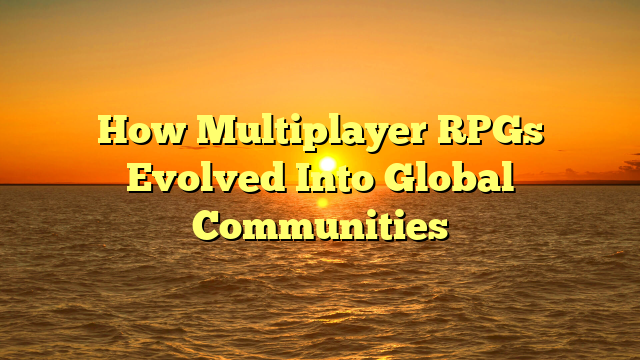Multiplayer RPGs began as niche experiments but have grown into massive global communities that shape the entire gaming landscape. The earliest forms raja toto88 of multiplayer RPGs were text-based MUDs (Multi-User Dungeons) of the late 1970s and 1980s. These games allowed players to explore virtual worlds, role-play with others, and battle monsters together using nothing but text commands. Although primitive, MUDs pioneered the concepts of persistent worlds, cooperative gameplay, and online socialization.
The 1990s marked the birth of graphical online RPGs. Ultima Online and EverQuest introduced living virtual worlds filled with hundreds of players interacting simultaneously. These early MMORPGs emphasized community, guilds, crafting, and large-scale quests. The sense of shared adventure and player-driven events set them apart from single-player RPGs.
The genre exploded in popularity with the launch of World of Warcraft in 2004. Its accessible gameplay, polished design, and massive social ecosystem established a blueprint for modern MMORPGs. Millions of players formed friendships, joined guilds, and participated in raids, transforming RPGs from solitary experiences into vibrant social platforms.
Meanwhile, multiplayer RPG concepts expanded beyond traditional MMORPGs. Action RPGs like Diablo II and Monster Hunter embraced cooperative multiplayer, while online JRPGs such as Phantasy Star Online introduced console audiences to connected RPG worlds. Western RPGs also adopted multiplayer elements; Mass Effect 3 and Dark Souls integrated asynchronous or cooperative systems that reshaped player interaction.
Today, multiplayer RPGs span a wide range of subgenres. Open-world online RPGs, looter shooters, social RPGs, and survival RPGs all incorporate multiplayer features that keep communities active for years. Live-service models, seasonal updates, and cross-platform play allow players around the world to participate in evolving shared worlds. Multiplayer RPGs have become more than games—they are social spaces, creative outlets, and cultural hubs.
